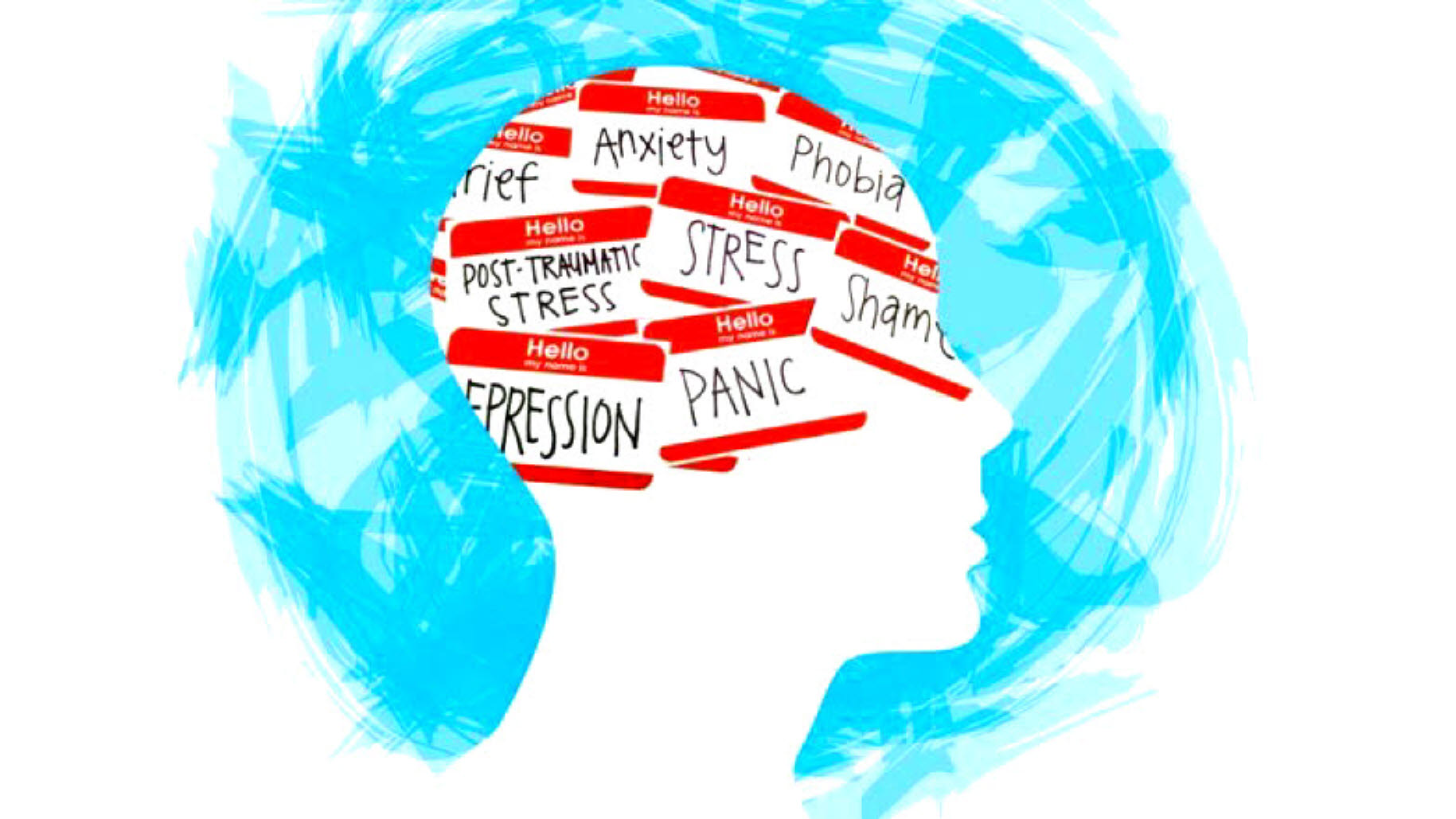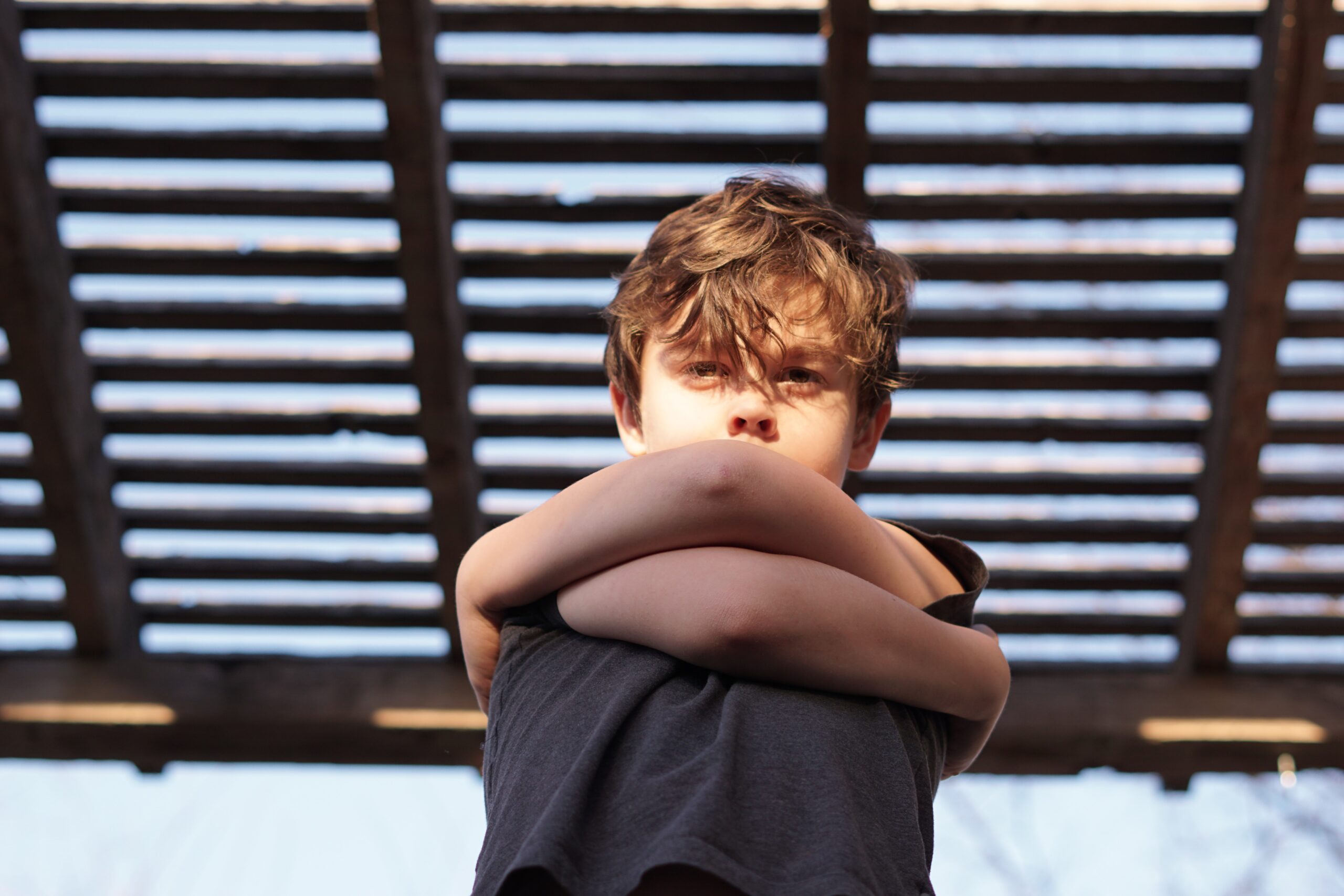
DEREK OSWALD EDITORIAL With May being #MentalHealthAwarenessMonth, and in light of the recent #suicides of high-profile musicians (such as AVICII, #ChrisCornell, #ChesterBennington, and #Naomi Judd), we wanted to let you know you’re not alone. According to the #NationalCenterforHealthStatistics (#NCHS) National Vital Statistics System (NVSS), #suicide has been a leading cause of death in the #UnitedStates for several years. Each year on average, 44,000-47,000 #Americans die by #suicide. Forty-six thousand died in 2020 alone. Globally, that number averages 700-800,000, or one death every forty seconds. Worse, the number of people who think about or attempt #suicide is even higher. These statistics are a heartbreaking reminder that #mentalhealth is a serious issue. We need to do more to address it. Too often, people struggling with #depression, #anxiety, or thoughts of #suicide feel like they are alone. Sometimes, they feel like they are a burden to their friends and family members. Sometimes, they do not know where to turn for help. For a long time, I have battled with #anxiety or #depression. Likewise, my family has dealt with #mentalillness in varying degrees, from the #suicide of extended family members decades prior to #depression, #anxiety, and other means. Because of my issues, I have had problems with #stress-based health issues (weight, digestion, elevated blood pressure) for years. In 2021, after years of doing nothing to help myself, I reached out for help. I started seeing a #therapist. It was one of the best decisions I have ever made. It has driven me to want to share my experiences to assist others because, speaking from personal experience, I know how it feels. #Mentalillness affects many people, yet so many suffer in silence. This #MentalHealthAwarenessMonth, I want to use Altwire’s platform to talk about how to get help if you are struggling with #mentalhealthissues. We will also discuss some celebrities who have lost their lives to #suicide and provide information for the #Suicide Helpline at the bottom of this post. Additionally, if you are unsure if you are depressed, there are many ways to quickly test #mentalhealth. Finally, if you feel lost or hopeless, please reach out for help. You are not alone. How does this tie into Altwire? Well, over the last few decades, there have been several high-profile #suicides by celebrities that have shocked and saddened their fans worldwide. Whether it is the recent 2022 death of #NaomiJudd or the losses of #ChrisCornell, #RobinWilliams, #KurtCobain, and others, we are losing many great celebrities far too young. These losses are particularly heartbreaking, given that they involve individuals who had such an enormous impact on culture and popular opinion. One of the most well-known losses was #ChesterBennington, the lead singer of the rock band Linkin Park. Chester died by #suicide in 2017 at the young age of 41, leaving behind a great legacy within both music and entertainment. Within his 17-year career in the public eye, Chester had spoken about his struggles with #depression and addiction. Yet, his death nonetheless came as a shock to fans worldwide. In the wake of his loss, his widow Talinda Bennington created a foundation called 320ChangesDirection, dedicated to reforming the discussion around #depression. Also, his surviving bandmates created the One More Light Fund, a charity dedicated to raising money for #MentalHealthAwareness. Another publicized #suicide was dance music producer AVICII, who died by #suicide in 2018 at 28 years old. Despite his meteoric rise to fame at a very young age, he struggled with #anxiety and chronic #mentalhealthproblems throughout much of his career. He had retired from live performances years before his death due to its toll on his mental state. His death sent shockwaves through the music industry. However, the disgusting and irresponsible way the media covered his death, with explicit details being leaked in the press, proves the media needs to do much better in handling #suicide. It is critical to consider the media’s role in elevating #suicide rates across the country after these artists’ passing. It is essential for us as journalists to understand how cautious we must be when reporting on deaths to avoid sensationalizing them and assisting in #SuicideContagion. #SuicideContagion, also known as #suicideclustering or the Werther effect, is a phenomenon where those struggling with #mentalillness are often driven to self-harm after a highly publicized #suicide. The phenomenon, as mentioned earlier, can be widespread among young people who may be vulnerable and impressionable and can have a significant impact on individuals struggling with #depression or other issues. Research has shown that several factors contribute to #suicidecontagion. For example, media coverage of #suicide tends to focus on sensationalized details such as the method of #suicide, the gruesome details, and the emotional pain experienced by the deceased. Places like TMZ will often play up gory details for clicks, failing to acknowledge the dangers they post by airing said content. These details can be very triggering for those at risk. They may even cause them to copycat the #Suicideattempt or think of #suicide themselves. Additionally, #suicide is often portrayed as a solution to emotional distress in popular culture, further normalizing this #behavior for susceptible individuals. This is unacceptable, and it is a significant contributor to the problem. Despite these challenges, it is vital for those struggling to seek out support from family members or #healthcareprofessionals when feelings of #suicidalideation arise. In addition, many online resources can connect people with support groups or therapeutic interventions that can help those in danger. With proper care and support, those struggling can overcome their #suicidalthoughts and get the help they need. If you are reading this article to try and learn ways to overcome your #depression, you have already started down the road to #mentalwellness. I am pleased to see you, and I know how difficult it is. Here are several things you can do to get started and learn how to heal yourself. IMAGE CREDIT: NAMI.ORG #James Donaldson notes: Welcome to the “next chapter” of my life… being a voice and an advocate for #mentalhealthawarenessandsuicideprevention, especially pertaining to our younger generation of students and student-athletes. Getting men to speak up and reach out for help and assistance is one of my passions. Us men need to not suffer in silence or drown our sorrows in alcohol, hang out at bars and strip joints, or get involved with drug use. Having gone through a recent bout of #depression and #suicidalthoughts myself, I realize now, that I can make a huge difference in the lives of so many by sharing my story, and by sharing various resources I come across as I work in this space. #http://bit.ly/JamesMentalHealthArticle Order your copy of James Donaldson's latest book, Celebrating Your Gift of Life: From The Verge of Suicide to a Life of Purpose and Joy http://www.celebratingyourgiftoflife.com 1. Talk to your #doctor about your #mentalhealthissues if you feel you are struggling. One of the most important things I heard go around after the death of #ChesterBennington was the oft-repeated phrase from his bandmate Mike Shinoda: “We need to talk about #mentalhealth the way we do physical health” If you think about it, you see a #doctor if you feel like you have the flu or break your leg. If your back is hurting you for an extended period, you see a specialist to ensure sure there is nothing worse going on. Still, society has such a #stigma around this topic that many people suffer in silence and do not seek help when it is crucial. #Mentalhealthissues can be as severe as physical health issues. They can have a significant impact on your quality of life. #Depression is more than feeling down or sad. It is an actual medical condition that affects your mood, thoughts, body, and #behavior. Prolonged #stress can lead to a greater risk of diabetes, a rise in blood pressure, weight gain, muscle aches and pain, digestive issues, and more. Being depressed can impact your motivation to do even the most menial tasks. It can affect hygiene and one’s ability to take care of oneself on a fundamental level. So why does society not take it more seriously? The effects of our mind on our body are so significant that it’s unfortunate many do not put this on the same pedestal as diet and exercise. In seeking help, it is essential to understand that #depression is not something you can quickly “snap out of.” You may have heard from ill-informed colleagues that you should “stop being sad” and that you have “so much to be happy about.” Yet, in reality, it is not that simple. It’s the same with #anxiety. #Anxiety is more than being nervous or stressed. It is an actual medical condition that can manifest in physical symptoms like a racing heart or sweating in severe cases. Finally, thoughts of suicide are not attention-seeking #behavior. If you have thoughts of #suicide, it is essential to get help. #Depression and #anxiety are genuine medical issues. It is vital to give these issues the medical attention they deserve as you would with an illness or injury. #MentalHealthproblems are real, they are common, and they are treatable. Navigating these issues can be complex, but there is no shame in seeking help. Talking to your #doctor is the first step toward getting the help you need to feel better. 2. Ask for a #mentalhealth referral to a #therapist or #counselor. When seeking help for #depression or #anxiety, it can often be challenging to know where to start. Many people find that asking for a referral seems daunting, but this can be an excellent first step. This is because there are many benefits to speaking to a #therapist or #counselor, including access to expert advice and guidance and the opportunity to develop new insights and strategies for managing your symptoms. Whether you have struggled with #depression or #anxiety or want to explore other options for managing your mental well-being, speaking to a #therapist can offer valuable insight and support. #Therapists are trained to work with individuals on various #mentalhealthdisorders, including #depression and #anxiety. They can also help you understand the underlying causes of these problems and develop strategies for dealing with them. In addition, working with a #therapist can give you a safe space to explore your feelings and emotions without judgment. Every #therapist has their unique approach, and some may assist through cognitive #behavioraltherapy, homeopathic remedies, or other means of healing. While insurance plans can and should cover treatment, look at your work’s benefits. Some jobs offer an EAP (Employee Assistance Program), which may afford you a few therapy sessions for free. This can be a huge benefit. In your journey to better #mentalhealth, you may have to go through a few different #therapists before you find the right fit. But, it is important not to get discouraged. Finding a #therapist you can trust and who feels right for you can make a world of difference. You deserve to heal! Be patient with yourself. Your issues are not your fault. So if you are struggling, do not let uncertainty about where or how to start get in the way – take that brave step today by reaching out and asking for a referral. With the right help and support, you will be on your way toward living a happier, healthier life! 3. Find a support group to connect with others struggling with their #mentalhealth. #Depression and #anxiety often cause feelings of #isolation, making it seem like you are alone in your struggles. Yet, this could not be further from the truth, and finding a support group is one of the best ways to prove that to yourself by connecting with others who are going through the same thing. These groups provide a safe space where individuals can share their experiences, offer advice and encouragement, and build a sense of community with people who understand what you are going through. Additionally, like with therapy, support groups serve as a valuable resource for coping strategies and helpful resources for managing #depression, #anxiety, or other conditions. Many groups are centered around specific issues or challenges, such as #depression or #anxiety. But, some groups also focus on particular populations, such as grieving #parents, people dealing with a chronic illness, or those who have suffered trauma or abuse. No matter what type of group you join, being able to discuss your challenges and feelings with others who understand what you are going through can be an empowering and healing experience. It is crucial to remember that you are not alone. Countless others have experienced similar feelings and are working through them with the support of others. You can too. When #ChesterBennington died in 2017, I witnessed the strength of community and togetherness. The reports of Chester’s death prompted many at-risk fans to fall into despair and #suicidalideations. Fans spent hours on #socialmedia connecting with distressed fans, offering their support and affection, and perhaps saving lives in the process. Following the death of AVICII, Linkin Park fans also demonstrated their strength in the days that followed, when they reached out to AVICII’s followers and offered comfort and support. It is impossible to exaggerate how beneficial a support network can be. Additionally, suppose you are someone who struggles with #socialanxiety. In that case, it may be easier for you to talk to someone online. For example, Reddit’s R/#MentalHealth subreddit is a leading #mentalhealth forum made to speak to others who are struggling. It is moderated by the “South Asian #MentalHealth Alliance (SAMHAA), a non-profit society dedicated to #mentalhealth #stigma reduction through skill development and community building.” At the end of the day, however, a support network is not a replacement for speaking with a professional. I recommend doing so in addition to professional therapy (if you need it) rather than replacing a #therapist. Whether you are starting your journey towards #mentalwellness or if you have been struggling for years without much progress, finding support, among others, is important. You may be amazed by the impact that connecting with others can have on your #mentalhealth – both now and in the long run. 4. For better #mentalhealth, take care of your physical health. When you are struggling with #anxiety or #depression, it is vital to take care of your physical health. This means eating a healthy diet, getting enough exercise, and getting enough sleep. Taking care of your physical health will not only make you feel better in the short term, but it will also help improve your overall health in the long term. Exercise is a great way to boost your mood and reduce #stress. Even if you do not feel like working out, try to do something active for at least 30 minutes a day. For example, you can go for a walk, run, bike ride, or take a yoga class. If you do not have time for a full workout, you can also do some great exercises at home. Eating a healthy diet is also vital for managing #anxiety and #depression. Eat plenty of fruits and vegetables and foods rich in omega-3 fatty acids (salmon, for example). If you don’t eat meat, dark green leafy vegetables, nuts, seeds, and legumes, such as beans and lentils, are also good. Getting enough sleep is essential. Most adults need between seven and nine hours of sleep per night. If you are not getting enough sleep, your #anxiety and #depression can worsen. Make sure to create a bedtime routine that will help you wind down before going to sleep. If you find yourself struggling to get proper sleep, consider scheduling an appointment with a sleep #doctor. Getting adequate rest is a crucial step toward promoting proper mindfulness. 5. Reduce #stress in your life Before you read the above in bold and proclaim aloud in a sarcastic tone, “wow! less #stress! Wish I would have thought of that”, hear us out. Suppose you are struggling with #anxiety or #depression. In that case, it is crucial to reduce #stress in your life through healthy means. This means learning how to say “no” when feeling overwhelmed and taking time for yourself—lessening your access to #socialmedia, which can foster stressful environments. Also, setting boundaries (especially with family and friends) can go a long way toward lowering #stress. Why Setting Boundaries Is Important #Stress is a normal part of life, and it can even be helpful in small doses. #Stress can motivate us to meet deadlines, finish projects, and accomplish goals. Despite how it may seem, it is virtually impossible to completely eliminate #stress from your life. Even those who appear to be at their most “zen”, will find #stress in certain situations. However, too much #stress can be overwhelming and harmful to our #mental and physical health. Therefore it is important to find a healthy balance between good #stress and bad #stress. Part of eliminating bad #stress is separating yourself from toxicity. Toxicity can come in many forms: toxic relationships, toxic work environments, and toxic family dynamics. Sometimes, the only way to reduce #stress is to cut out the toxicity. This may mean setting boundaries with people who are not supportive or leaving a job that is causing too much #anxiety. But be careful. It’s important to be careful not to move too quickly or shut everyone out. When we’re at our lowest, we need a support network of family and friends who can help us through tough times. Often, those who feel they are at their breaking point will do the opposite, and attempt to isolate themselves. This is because #stress can cause us to make rash decisions, so it’s important to deal with the obvious #stress points first, but keep an open and patient mind. Be careful not to shut everyone out—sometimes the people who love us the most are the ones who can help us heal. This doesn’t mean you should deal with #behavior from others that causes hurt. Setting firm limits on what you will and will not accept in relationships and responsibilities can help you create a more supportive environment to focus on your own needs and well-being. However, it is also important to practice mindfulness and listen to those around you to make sure you are giving proper attention and helping create healthy relationships. Healthy relationships are two-sided, equal effort, and not based around a single party’s desires and opinions. Have you ever found yourself trying to answer someone before they finished speaking? Next time, try to listen and then respond. Be mindful. It may avoid an argument. Doing all of this can assist you in making better choices about the risks and rewards of specific interactions or situations. Lowering #stress in your life is essential for maintaining good #mentalhealth and living a happier, more fulfilling life. Furthermore, finally, remember… 6. It is A Marathon, Not A Sprint When you seek help, it can often feel hopeless if you are trying to get better but feel that you are making no progress. Do not get discouraged! Remember that all journeys take time and that the finish line, no matter how far away it may seem, will come. #Mentalhealthconditions can range from mild to severe, and they can last for days, weeks, months, or even years. Furthermore, #mentalhealthconditions may need ongoing care, like physical health conditions. Developing healthy coping mechanisms and establishing a solid support system can take years. I will leave you with an analogy my #therapist gave to me one day when I felt like I was not getting anywhere and that I would never get better: Nobody is perfect. Even professional athletes, paid millions of dollars to perform at the top of their game, have bad days.
https://standingabovethecrowd.com/?p=9345







